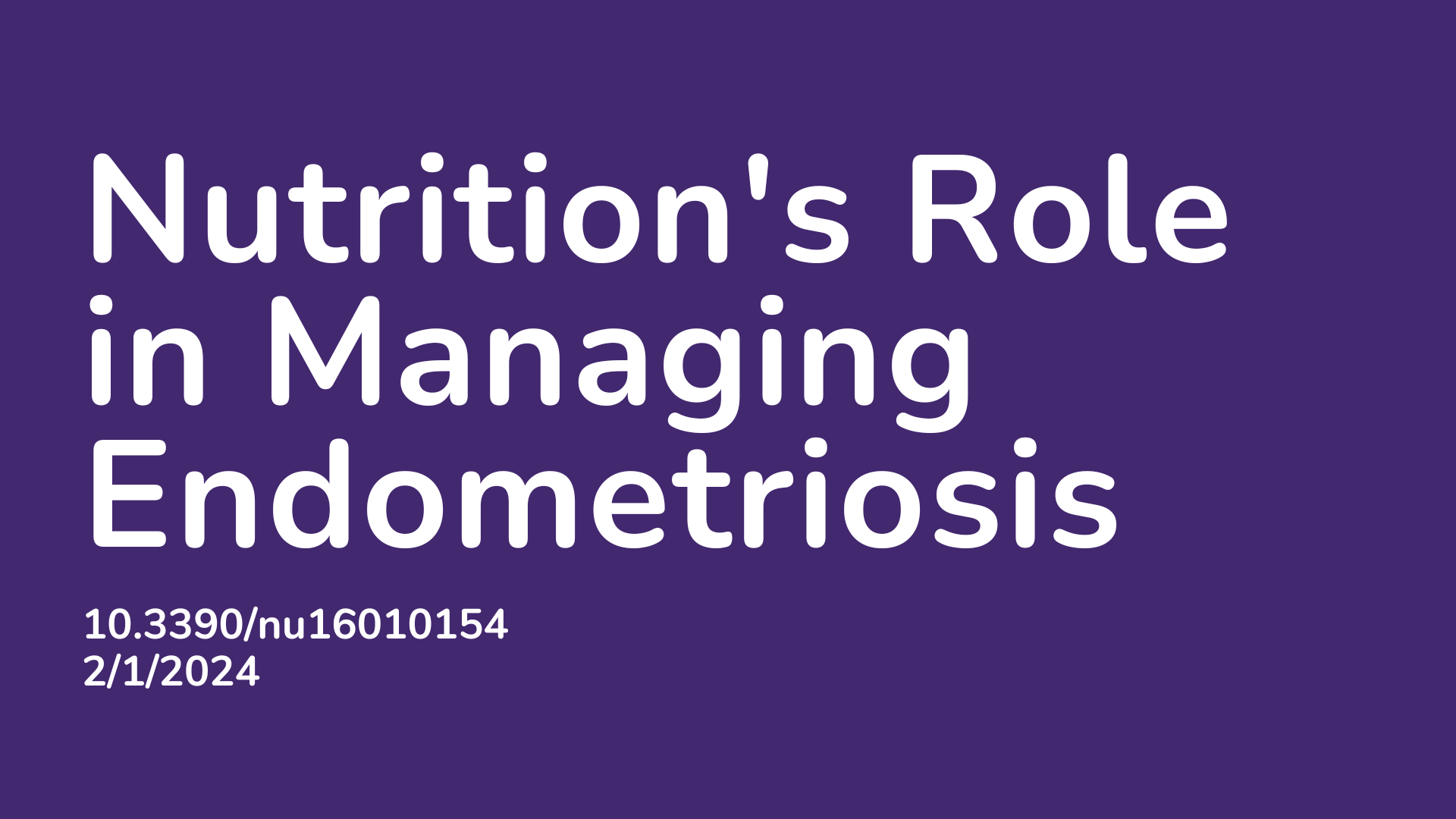Summary:
Endometriosis, characterized by the growth of endometrial tissue outside the uterus, is a chronic condition influenced by immunological, hormonal, and genetic factors. Effective management requires a holistic approach incorporating nutrition and lifestyle measures. Nutrition plays a pivotal role, impacting inflammation and oxidative stress, which are both implicated in the disease process. Identifying beneficial dietary modifications is imperative, given that many people with endometriosis lean towards diet and lifestyle to manage their symptoms as there is an absence of clear treatment guidelines in endometriosis protocols. Furthermore, the presence of biologically active contaminants like phthalates and bisphenol A (BPA) in food adds another layer of complexity, acting as endocrine disruptors and exacerbating the disease course. This paper is a review of the current research on endometriosis and diet. It indicated that nutrients with anti-inflammatory and antioxidant properties, including various vitamins and trace elements, may impact endometriosis pathogenesis, potentially preventing its development. Vitamin E, C, A and protein, omega-3 fatty acids and zinc were highlighted as nutrients that are highly supportive to endometriosis management.
Endometriosis is a chronic, hormone-dependent disease characterized by the presence of endometrial tissue in ectopic locations. Since the treatment options for this disease are still limited, and the cure rate is unsatisfactory, the search for ways to treat symptoms and modify the course of the disease is of key importance in improving the quality of life of patients with endometriosis. So far, the literature has shown that nutrition can influence endometriosis through hormonal modification and altering the inflammatory or oxidative response. Since the importance of nutrition in this disease is still a subject of scientific research, we aimed to summarize the current knowledge on the role of dietary modifications in endometriosis. Our review showed that nutrients with anti-inflammatory and antioxidant properties, including most vitamins and several trace elements, may influence the pathogenesis of endometriosis and can be considered as the nutrients preventing the development of endometriosis. However, despite the many discoveries described in this review, further interdisciplinary research on this topic seems to be extremely important, as in the future, it may result in the development of personalized therapies supporting the treatment of endometriosis.
Article Publication Date: 2/1/2024
DOI: 10.3390/nu16010154



